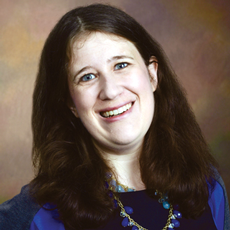
For all the excitement around our McKnight’s Women of Distinction program, there has occasionally been the question of “Why?” As in, “Why do you have this program? Shouldn’t we celebrate men, too?”
Of course there are plenty of non-gender-based programs that celebrate providers — the McKnight’s Excellence in Technology Awards program is one (and the deadline has been extended, so check it out). But I think part of the question “Why?” is based on how many of our readers are surrounded by women at work, and how they see many strong female executives leading the organization.
While we created the program to highlight women who often hadn’t been recognized, we’ve also realized how complicated the question of gender inclusivity is through the long-term care and senior living markets. That was never more clear than during a Ziegler Link-Age Fund symposium panel Thursday on “Women Leading in the Longevity Market.”
One of the panelists, Carrie Shaw, the founder and CEO of Embodied Labs, spoke about her efforts as an entrepreneur, and how different the experiences are for men and women when pitching to investors.
To wit: Only 15% of companies receiving venture capital investment have a woman on their executive team and less than 3% have a woman CEO, one study found. Another analysis found that, “in an elevator pitch competition, investors were less likely to select as finalists entrepreneurs who demonstrated stereotypically feminine behaviors like warmth and expressiveness, regardless of their gender.”
While men are often asked about what they are excited about with their project and company, “Women get more questions about risk,” Shaw noted. She and audience participant George Netscher, the CEO at SafelyYou, commiserated around venture capital funding needs.
“The very early stage investing is, ‘I believe in this team,’ and that has so many biases,” he noted.
That’s also on top of how many investors don’t see the long-term care market as bright and shiny, panelists noted.
“The longevity market is hard for them to buy into,” said Mary Furlong, the founder of Mary Furlong and Associates, who was credited as being a driving force behind the Ziegler Link-Age fund creation.
Other audience participants mused on questions around the industry, with one executive mentioning to me that she notices how many driving forces at LeadingAge now are women. In some ways, she feels bad for men, she commented.
But another female CEO noted how while some providers may have a day-to-day work life filled with female executives, others “are in a completely different alternative universe that is male-dominated.”
Women are rising to power more often and becoming executives. They may not have lived in the reality of 10 years ago, where they were the sole woman or member of a minority group, she said. But subtle barriers remain, especially around investors, high-level summits and in boardrooms.
“They’re there and part of the team … but they aren’t really,” she said. “Not in the same way as someone who lives next to them.”
But Furlong and other participants reminded the packed room of how much success can stem from being persistent, whether it’s in recruitment strategies, finding capital or in experimenting with technology.
“A lot of women lead in a quiet way but it doesn’t mean they can’t be extraordinarily powerful,” Furlong said. “A lot of power comes from quiet tenacity.”
Follow Deputy Editor Elizabeth Newman @TigerELN.



